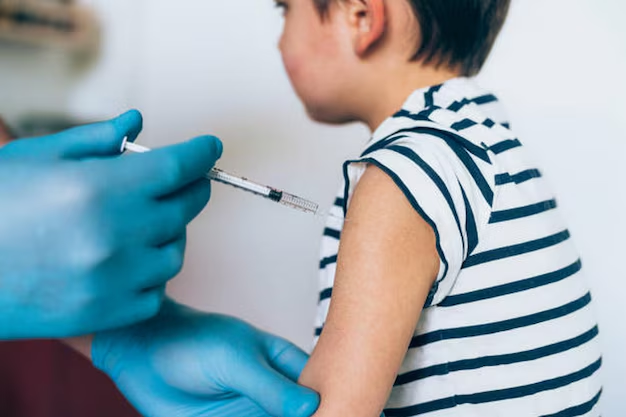How Effective Is the Measles Vaccine: Understanding Its Longevity and Impact
Imagine a world without measles—a world where this highly contagious virus is no longer a threat. For many, this is the power of vaccination. But just how long does the measles vaccine protect you? To understand the durability of this crucial immunization, we must delve into its mechanisms, schedules, and its broader community impact.
The Measles Vaccine: A Long-Lasting Shield
Understanding Vaccine Longevity
Measles vaccination, part of the MMR (measles, mumps, and rubella) vaccine, is renowned for its enduring protection. But how long is this immunity expected to last? According to extensive research, the measles vaccine can provide lifelong immunity for most vaccinated individuals, especially those who follow the recommended two-dose schedule.
The Two-Dose Advantage
The Centers for Disease Control and Prevention (CDC) recommends a two-dose routine, which significantly boosts the immunity provided:
- First Dose: Administered at 12-15 months of age.
- Second Dose: Administered at 4-6 years of age.
This two-dose series ensures that immunity doesn't wane over time, thanks to a booster effect that enhances the body's immune memory.
Why Lifelong Protection Matters
The Consequences of Waning Immunity
A key reason for emphasizing long-lasting immunity is the contagious nature of measles. Unlike some infections, measles can spread quickly, making sustained community immunity crucial. Waning immunity could lead to outbreaks, highlighting the importance of the vaccine's durability.
Herd Immunity and Community Health
When a significant portion of the community is vaccinated, herd immunity is established. This phenomenon is vital as it reduces the overall amount of the virus, protecting those who cannot be vaccinated, such as infants or individuals with certain medical conditions.
What If You Missed the Second Dose?
Catch-up Vaccination Schedules
Life happens, and sometimes vaccination schedules are interrupted. If you missed the second dose, it's not too late. Catch-up vaccinations can align your immunity with those who followed the standard regimen. Depending on when you receive the catch-up dose, adequate immunity can still be achieved.
Adult Vaccination: Is it Necessary?
For adults, especially those unsure about their vaccination status or born after 1957, it's recommended to verify your immunity status. A blood test can ascertain whether you're immune to measles, determining the need for an additional dose.
Addressing the Concerns: Is Immunity Permanent?
Breakthrough Infections
Though rare, breakthrough infections can occur in vaccinated individuals due to various factors, such as exposure intensity or individual immune response variances. These instances are usually mild compared to infections in unvaccinated individuals.
Monitoring and Revaccination
For some, serological testing (measuring antibodies in the blood) helps in deciding the necessity for additional doses. However, routine revaccination for measles is not generally recommended given the vaccine’s robustness.
The Global Perspective
Eradication Efforts
The measles vaccine is pivotal in global eradication efforts. With high vaccination coverage, some regions have successfully eliminated measles, illustrating the vaccine's potential when combined with public health strategies.
Overcoming Vaccine Hesitancy
Despite its success, misinformation about the vaccine has led to hesitancy. It's essential to address this through education, emphasizing that the risk of vaccine-preventable diseases far outweighs the minimal risks associated with vaccinations.
The Future of Measles Immunization
Innovations in Vaccine Delivery
Innovation continues in vaccine technology. New methods, such as micro-needle patches, are being developed to make vaccine administration easier and more accessible, especially in remote areas.
Personalized Vaccination
As research advances, we may see more personalized approaches to vaccination, potentially providing specific solutions for those with atypical immune responses or concerns about vaccine components.
Bringing It All Together
The measles vaccine is a powerful tool against a formidable virus. By offering long-lasting immunity, it protects not just individuals but communities at large. Remember that staying informed and adhering to recommended vaccine schedules are crucial steps in maintaining health and contributing to public safety.
Quick Recap: Measles Vaccine Insights 🛡️
- Duration of Effectiveness: Lifelong for most individuals following the two-dose schedule.
- Vaccine Schedule: First dose at 12-15 months, second dose at 4-6 years.
- Why It Matters: Sustained immunity is critical for preventing outbreaks and protecting community health.
- Missed Doses?: Catch-up vaccinations and adult checks ensure protective coverage.
- Global Impact: Essential for eradication efforts and achieving herd immunity.
- Future Prospects: Innovations in vaccine delivery and potentially personalized approaches.
By understanding the enduring benefits and implications of the measles vaccine, individuals are empowered to make informed health decisions, contributing to a healthier, measles-free world. 🌍

Related Articles
- Are Measles Deadly
- Can Adults Get Measles
- Can You Get Measles If Immunised
- Can You Get Measles If Vaccinated
- Can You Get Measles If You Are Vaccinated
- Can You Get Measles If You Re Vaccinated
- Can You Get Measles If You're Vaccinated
- Can You Get Measles If You've Been Vaccinated
- Can You Get Measles More Than Once
- Can You Get Measles Twice
